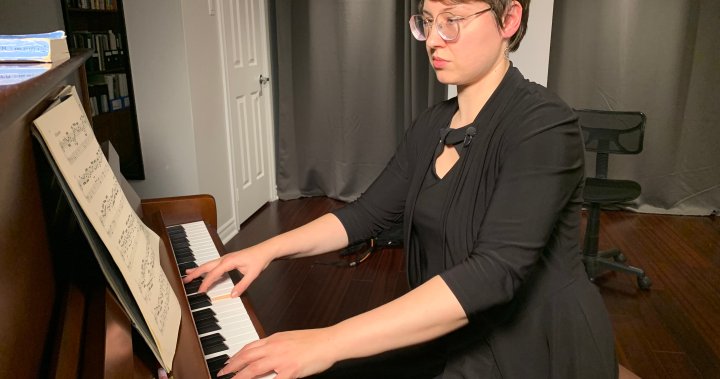
Alberta pianist stayed in Quebec after graduating. She worries tuition hikes mean others won’t follow suit
Global News
Carol-Anne Fraser may have come to Montreal to pursue her graduate studies in music, but the pianist has long since made the city her home.
Carol-Anne Fraser came to Montreal to pursue graduate studies in music, and the pianist has since made the city her home. But Fraser — who moved here to study in and learn the French language — worries the recently announced tuition increase for out-of-province students will deter potential students and limit access to post-secondary education overall.
“I feel like I fell in love with the culture, the arts scene, the community that I’ve created here,” she said.
The Alberta native packed up and moved to Ottawa in 2005 for her bachelor’s of music in piano performance. After meeting a teacher she wanted to work with, she opted for a master’s degree in music at the Université de Montréal.
At the beginning, she found work giving piano lessons in English but quickly realized she needed a certain level of French in order to live and work here.
“The opportunity to learn French was really exciting to me and scary at the same time,” Fraser said, adding that while she still makes mistakes, she is now able to work and live in French.
Fraser received her doctorate from Université de Montréal in 2016 and also holds a diploma in collaborative piano from McGill University. When her studies ended, she found a number of reasons to continue building a life here.
In October, the Legault government announced out-of-province tuition will rise to $17,000 from $8,992 starting next year. The changes are expected to disproportionately affect the province’s three English-language universities, which welcome more students from outside of Quebec than their francophone counterparts. The province will also collect a first $20,000 paid by international students and reinvest that money in French-language universities.
The increase in tuition fees has prompted backlash from administrators and students at both English and French universities, while the government defends the plan.
